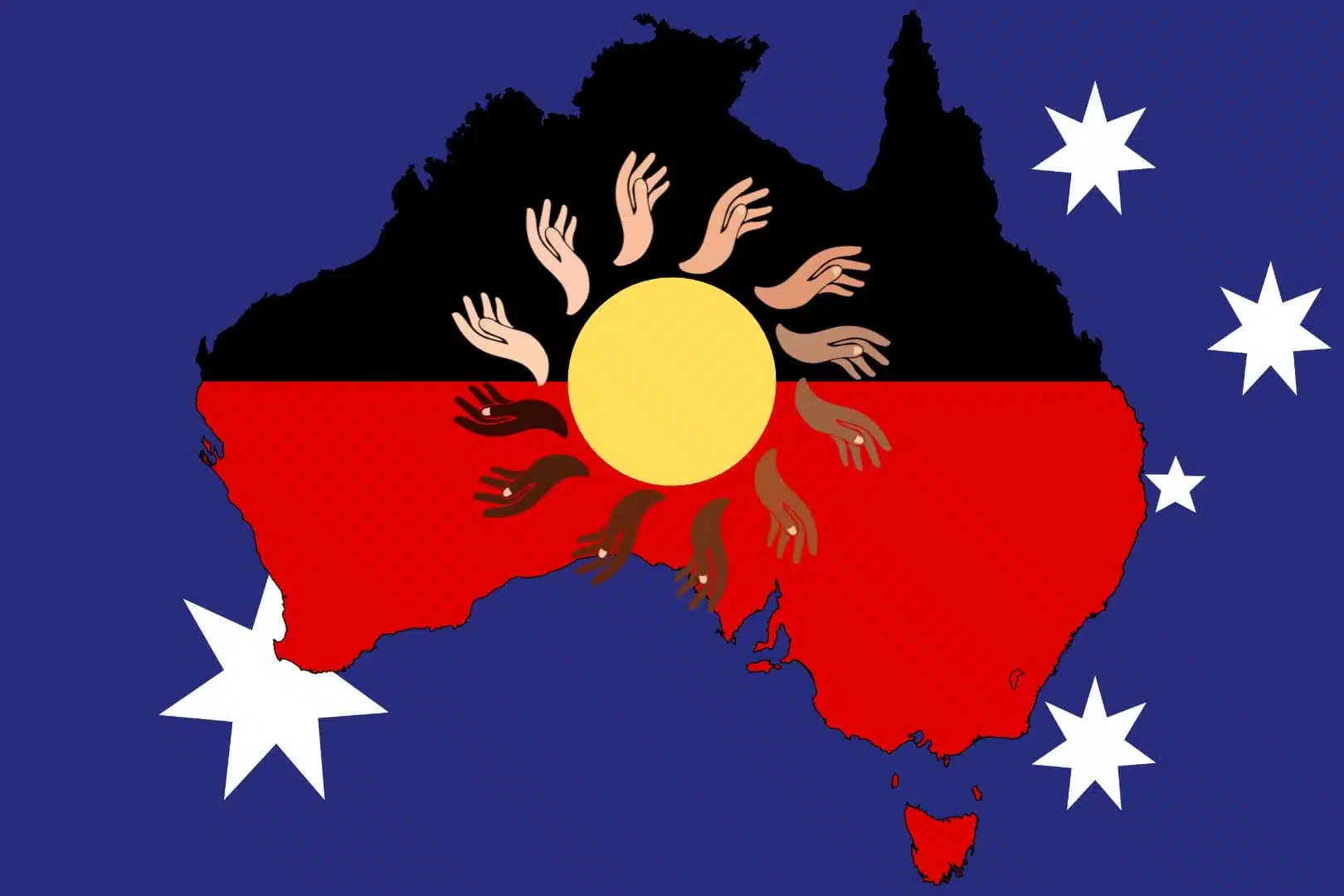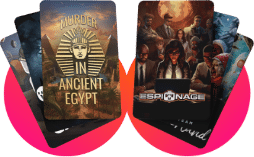You found our list of the best National Reconciliation Week activities.
National Reconciliation Week activities are ideas that promote nationwide harmony by teaching Australia’s history, achievements, and diverse cultures. Examples include hosting a potluck and advocating for national reconciliation through social media. The purpose of these activities is to foster a better understanding and appreciation of Aboriginal and Torres Strait Islander cultures and history.
These examples are similar to Hispanic Heritage Month activities, Asian Pacific Heritage Month activities, Arab American Heritage Month, and Indigenous Peoples Day ideas. These activities can create a positive work environment and improve the company culture.

This list includes:
- National Reconciliation Week activities for adults
- National Reconciliation Week activities for students
- National Reconciliation Week events
- National Reconciliation Week ideas for work
Let’s get started!
List of National Reconciliation Week activities
Each year, Australians recognize National Reconciliation Week to foster relationships between the Aboriginal and Torres Strait Islander people and non-native individuals. From hosting traditional Aboriginal games to local cultural tours, here is a list of the best activities for commemorating National Reconciliation Week.
1. Donate to Nonprofit Organizations
Donations to nonprofit organizations top the list of National Reconciliation Week activities for schools or businesses. First, you will need to identify organizations to support. It is important to be open to taking recommendations from your team. One way to donate is by matching employees’ donations. Alternatively, you could host a donation drive in the school, online, or within your city.
Here are some examples of great nonprofits:
- Link-Up (NSW) Aboriginal Corporation
- Australia for Native Tile and Reconciliation
- Reconciliation Australia
These organizations support Aboriginal communities, and donations will go a long way in fostering equity and reconciling the country.
Here are more charity team building ideas.
2. Host a Potluck
Food plays a vital role in uniting diverse cultures. As such, holding a potluck is a fantastic choice for National Reconciliation Week events. You could host a company-wide breakfast or lunch event. Consider requesting that all participants bring foods or fruits distinctive to the Aboriginal and Torres Strait Islander communities.
Individuals can either bring meals they enjoy or order foods they want to learn how to make. Some great food ideas are taro, desert quandong, dampers, and shellfish. If you have a remote team, then consider hosting a virtual potluck. Participants could state the reasons behind their choice of food options. Hosting a potluck honors the influence of the Aboriginal and Torres Strait people on the culinary scene.
Get our free team building toolbox
- icebreaker games
- bingo cards
- DIY guides
 by teams at FedEx, Amazon, Deloitte and 73,930+ others
by teams at FedEx, Amazon, Deloitte and 73,930+ others

3. Hold a Team Lunch Catered by Aboriginal and Torres Strait Islander Restaurants
Hosting a team lunch catered by Aboriginal and Torres Strait Islander restaurants or eateries is a great way to reconcile and support their businesses. Your team will enjoy authentic cuisines as they learn more about the Aboriginal and Torres Strait Islander cultures. Also, consider holding lunch and learn sessions. These sessions will bring teams together as they learn the importance of reconciliation measures for the country.
Check out this ultimate guide to hosting lunch and learns.
4. Invite Aboriginal and Torres Strait Islander Speakers
One of the best ways to foster understanding of the relevance of National Reconciliation Week is by inviting Aboriginal and Torres Strait Islander Speakers. Through first-hand stories, participants will learn how to navigate biased beliefs about these communities. Encourage speakers to talk about their personal experiences and challenges their communities experience. Inviting Aboriginal and Torres Strait Islander speakers is a clever way to teach employees how to be better allies and advocate for the rights of every individual.
5. Host Traditional Aboriginal Games
Even as you promote reconciliation, consider creating a fun environment by hosting traditional games. You could invite an Aboriginal native to lead players through the games. These games are now creatively adapted for modern play, mainly for safety reasons. For instance, players will use tennis balls in place of spears.
Here are some examples of traditional games:
Traditional Aboriginal games will bring players together and foster connections between urban Indigenous youth and their culture. These games are a clever pick of National Reconciliation Week activities for students to aid retention.
Here are more interactive games for students.
6. Take Local Cultural Tours
Rather than teaching Australian history through theory, consider hosting local tours. For example, you could tour landmarks and sacred sites significant to the history of the Aboriginal communities.
Here are some great places for a cultural tour:
- Uluru
- Kakadu National Park
- The Kimberley
- Ku-ring-gai Chase National Park
- Birrarung Marr
- Devil’s Pool
- South Australian Museum
We encourage schools looking for educational and fun National Reconciliation Week activities for students to consider local cultural tours. Additionally, hiring Aboriginal and Torres Strait Islanders guides will promote reconciliation and allow students to learn more.
7. Volunteer
Volunteering is an excellent National Reconciliation Week activity. Participants can offer their talents, skills, and time to Aboriginal communities or nonprofit organizations. For instance, participants can volunteer at the Aboriginal Benefits Foundation Trust, an organization that supports local education and health programs. Other notable organizations are the North Australian Aboriginal Justice Agency and the Gunawirra.
Check out North Australian Aboriginal Justice Agency, Gunawirra, and Aboriginal Benefits Foundation Trust.
Here are group volunteer ideas.
8. Start a Diversity Program
Starting a diversity program is a top option for businesses searching for long-term National Reconciliation Week activities for adults. Organizations can use diversity programs to identify and address bias in the recruitment stages, value individual skills, and provide flexible work options. A diversity program creates an avenue for businesses to ensure equality in the workplace. Diversity programs will also create equal employment opportunities for the Aboriginal and Torres Islander communities. With effective diversity programs, businesses will improve cultural awareness, build a positive reputation, and boost creativity and productivity.
For inspiration, check out these diversity program ideas.
9. Advocate for National Reconciliation Through Social Media
Advocating for togetherness through social media is one of the most effective National Reconciliation Week activities for adults. This action will reach beyond your clientele and make a significant impact.
Ideas:
- Offer film and book recommendations reinforcing the importance of national reconciliation.
- Use reconciliation hashtags across social media channels.
- Share pictures of teams holding a sign showcasing a national reconciliation message.
Advocating for National Reconciliation through social media will promote your cause and foster connections with like-minded individuals and organizations.
10. Offer Aboriginal and Torres Strait Islander-Inspired Gift Baskets
If you want to enchant individuals, then consider commemorating National Reconciliation Week with gift baskets. This idea is a great way to support and honor the cultures of the Aboriginal and Torres Strait Islander communities.
Here are some ideas to get your gift baskets started:
- Soy wax candles in a tin by Nagula Jarndu
- Jukurrpa Aboriginal Coaster Set
- Midawarr Harvest 1000 piece jigsaw puzzle
- Hair Scrunchies
Be sure to purchase gifts from Aboriginal business owners as opposed to non-Aboriginal enterprises. Also, consider the cultural significance and whether the items are appropriate for gifting.
Check out more gift basket ideas.
11. Films
Films are a fantastic choice of National Reconciliation Week ideas for work. Through storytelling and real-life experiences, participants will learn more about society’s history, culture, and inequality. Consider choosing films highlighting vital and unforgettable stories from Indigenous Australians.
Here are some movies you could watch:
- In My Blood It Runs
- The Tracker
- Ten Canoes
- Charlie’s Country
- Gurrumul
- High Ground
- Satellite Boy
- The Australian Dream
These films provide an opportunity to recognize Indigenous rights and make efforts to reunite communities. Be sure to follow up with a discussion to promote learning and pave the way for open discussions.
Here are workplace movie ideas.
12. Share Emails with Participants
If you are looking for cost-friendly and effective National Reconciliation Week ideas for work, then consider sharing emails with participants. You could start by encouraging team members to update their email signatures with national reconciliation signage. A great idea is sharing different topics throughout the week and encouraging stakeholders to share their thoughts or discuss them with their peers. For instance, you could talk about the significance of the Bridge Walks for Reconciliation event dating back to 2000. This idea will educate individuals and provide deeper perspectives into the history and culture of the Aboriginal communities.
13. Organize Family History Storytelling Sessions
To encourage openness about diverse communities and practices, consider the family histories storytelling sessions. As the leader, you could explain where you come from and uncommon practices in your communities. Then, let participants share their origins, taking them back to their ancestors. These sessions are among the best National Reconciliation Week events to eliminate stereotypes. This activity fosters connections between individuals with different origins and practices.
14. Use Aboriginal Language
Languages are powerful tools for fostering belonging and inclusion. Thus, using Aboriginal terms is a simple national reconciliation activity participants will enjoy. For instance, consider using simple local Aboriginal words for greetings. You could also encourage participants to teach each other Aboriginal terms and their meanings. Aboriginal words are a valuable part of the country’s rich heritage to bring communities together.
15. Listen to Music by Aboriginal and Torres Strait Islander People
Listening to Aboriginal music is a fantastic way to entertain participants and promote cohesion. You can create a playlist and invite individuals to add their favorite Aboriginal tunes or songs with pivotal lessons.
Here are some examples of Aboriginal music:
- “Way keriba ged” (This is our island) by John Bon
- “Keyp Yok Adud Ged” (Cape York is a bad place) by John Bon
- “Took the Children Away” by Arche Roach
- “Bolu” by Saltwater Band
- “Under the Milky Way” by Jimmy Little
To go the extra mile, consider hosting traditional-themed jam sessions. Participants can try to make beats with traditional equipment like clapping sticks.
16. Learn Aboriginal Dances
Common among groups performing similar or identical motions, Aboriginal dance sessions are an excellent choice for National Reconciliation Week activities. You can host a dance session where participants learn contemporary and traditional moves. Consider inviting a local Aboriginal dancer to lead teams in the energetic body movements.
Here are some examples of traditional dances:
- The Cassowary Dance: Bundara
- Sugar Bag: Muguy
- The Silent Snake: Pamagirri
- Shake-a-leg: Warran Jara
Most of the Aboriginal dances feature the movement of nature, animals, and life activities. Thus, individuals will have a new experience promoting national reconciliation.
17. Play Trivia
A trivia session is a top choice of National Reconciliation Week ideas. During trivia, participants will learn more about the history of Australia in a relaxed setting. First, split participants into different teams. Then, let teams have a healthy competition, and reward the group that gets the most questions right.
Here are some examples of trivia questions:
- What year did National Reconciliation Week begin?
- Answer: 1993
- Which year did Australia amend the constitution to include Aboriginal and Torres Strait Islander people in the census?
- Answer: 1967
- Which year did Australia appoint the first Minister of Aboriginal Affairs?
- Answer: 1981
- What percentage of people voted “Yes” to count Aboriginal and Torres Strait Islander peoples in the census?
- Answer: Over 90%
- What is the 2023 theme for National Reconciliation Week?
- Answer: Be a Voice for Generations
- Which was the pioneer territory or state to create a public holiday in recognition of Reconciliation Day?
- Answer: Australian Capital Territory
- Who was the first prime minister to issue an apology to the Indigenous Australians for stolen generations, and in which year?
- Answer: Kevin Rudd, 2008
The trivia sessions are a fun way to teach the country’s history and celebrate diverse cultures. To make the trivia sessions interesting, consider giving players a list of multiple choice answers for each question.
Here are more team trivia games.
18. Hold a Welcome to Country Ceremony
A welcome to country ceremony is an event where native elders or select spokespersons welcome individuals to the nation. For this ceremony, you will invite Aboriginal or Torres Islander people to lead the ceremony. The natives could start with speeches or performances like traditional dances or songs. Consider pairing the ceremony with varieties of native food and drinks. Participants will have fun, learn Australian history, and promote national reconciliation.
19. Commission Aboriginal Artwork
One of the best National Reconciliation Week activities for schools and organizations is commissioning an Aboriginal or Torres Islander artwork. The art dates back as far as 60,000 years and provides insights into the Aboriginal culture. Some common Aboriginal styles you can choose from are abstract painting, dot painting, and sand and rock engraving. Since native art conveys information through symbols and icons, consider inviting renowned artists to explain the meaning of the art. This activity will help participants understand native art styles and symbols. Commissioning Aboriginal artwork will also promote belonging for Native Australians.
20. Write a Reconciliation-Themed Piece
Writing a piece on national reconciliation is a fantastic idea for students to bring students together and teach more about national reconciliation. Some interesting topics include the importance of reconciliation, how to foster national harmony, and local advocacy issues. You can even consider publishing the works in local or international newspapers, boosting your school’s or organization’s image.
21. Build a Reconciliation Wall
If you want to foster reconciliation all year round, then consider the reconciliation wall idea. For this activity, you will designate one space within your office or school. Then, let participants post items, artwork, or writing fostering national reconciliation. For instance, one participant could write a story about a native citizen they admire or a poem depicting the importance of national reconciliation. You can then have a session where participants explain the significance of the displays.
22. Do Scavenger Hunts
If you are looking for National Reconciliation Week event ideas, then scavenger hunts are a great bet. The simple activity equips individuals with diverse knowledge about the country’s history and native communities. First, start by hiding select objects, then give individuals limited time to find the objects.
For instance, participants could find Aboriginal:
- Musical instruments
- Clothing
- Food
Be sure to offer enticing rewards to the winning groups.
Here are scavenger hunt ideas.
23. Plant Indigenous Trees
Planting native trees is a great way to foster national reconciliation and promote environmental conservation. You could work with your local government or nonprofit organizations and identify the best native trees for specific regions. Then, host a company-wide tree planting day. You could also provide seeds and encourage participants to plant vegetation in their backyards. Individuals will also learn the significance of native trees in sectors such as health and wellness.
Conclusion
Dating back to 1993, National Reconciliation Week plays a critical role in uniting Australians. Individuals focus on activities promoting understanding, respect, and reconciliation between Aboriginal and Torres Strait Islander peoples and non-Indigenous citizens. These activities acknowledge past wrongs and celebrate the contributions and resilience of Indigenous peoples. As such, National Reconciliation Week activities provide a powerful platform for building bridges between communities and working toward a future based on mutual respect and understanding.
Next, check out our list of spirit week ideas for work, Black History Month activities, diversity and inclusion activities, and Indigenous Heritage Month quotes.




